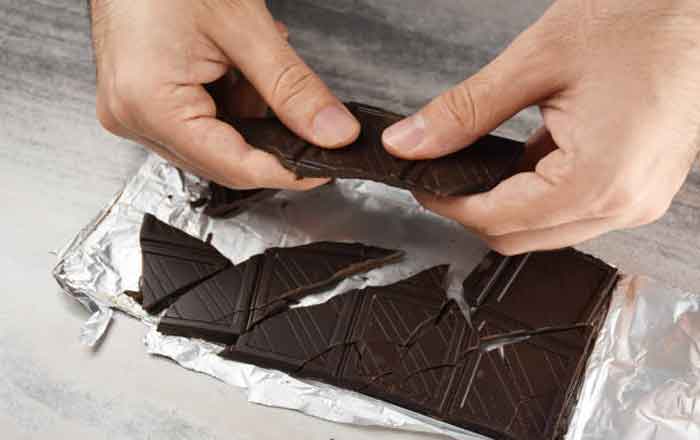Many breastfeeding mothers are curious about whether it is safe to eat chocolate. The answer is yes, when it is eaten responsibly with quality ingredients and in small amounts.
Chocolate contains a stimulant called theobromine, which can pass into breast milk and affect a baby. This may cause fussiness, diarrhea, or excess gas.
Caffeine

Chocolate is a good source of energy and many breastfeeding mothers use it to keep their energy up. However, consuming too much can cause an energy crash and lead to fatigue. Nursing mothers should also be aware that theobromine, which is a stimulant found in chocolate, can affect newborns. When combined with the caffeine that is also present in chocolate, it can make a baby fussy and irritable.
Caffeine and theobromine can pass to a baby through breast milk in small amounts, but it is usually not a problem for most new moms. It is important to note that white and milk chocolate contains less theobromine than dark chocolate and can be eaten in moderation.
Irritated and jittery babies can become fussy, inconsolable and struggle to sleep. In this case, the mother should slowly reduce her intake of chocolate and caffeine to see if her baby’s behavior returns to normal. She should also be careful with other foods that contain coffee and caffeine, such as tea, soda and energy drinks.
Sugar

Some breastfeeding mothers find that consuming chocolate can cause their babies to be fussy and sleepless. This can be due to the theobromine in chocolate (or, in some cases, added caffeine). This is a stimulant that can cause sleepiness and irritability in some babies. In addition, some mothers find that their babies want to cluster feed or nurse more frequently after eating chocolate.
However, it is important to note that most breastfeeding mothers don’t experience this issue when they eat small amounts of chocolate. A few pieces of chocolate each day or a few chocolate-covered snacks aren’t likely to interfere with your breastfeeding relationship or cause your baby to be fussy or sleepless.
Most breastfeeding women also don’t need to “pump and dump” after eating chocolate, as they aren’t ingesting any alcohol or toxins that would be transferred to their breast milk. But, it is always best to exercise moderation when eating any food while nursing, browse around this website.
Fat
Most breastfeeding mothers are concerned that a large amount of chocolate will result in an excessively gassy baby. While it is true that some of the ingredients in chocolate, such as the fat and caffeine, can be transferred to a baby through breast milk, this is only likely to happen if the mother eats extremely large amounts of chocolate at one time.
The fat in chocolate also doesn’t have the same effect on a nursing baby as does sugar, so it isn’t likely to cause a colicky baby. Some mothers who eat a lot of chocolate may find their babies are more fussy than usual or may have some difficulty sleeping, but this is usually related to other issues and not the food being eaten.
The fatty components in chocolate, as well as the caffeine and theobromine, can all be found in the milk produced by a nursing mother. In this case, it is important for the mother to pump and dump if she feels that her baby’s symptoms are becoming too severe.
Allergens

Many breastfeeding mothers find that the theobromine in chocolate can make their babies fussy and keep them awake. It can also pass through the milk and affect the baby, so you might want to avoid large amounts of chocolate. However, consuming chocolate in moderation is generally considered safe.
You should pay attention to your baby and look for signs of an allergic reaction, such as a rash or difficulty breathing. If these symptoms appear, you should consult with a doctor.
Conclusion:
If you do have to pump and dump, it is usually because of alcohol or toxins passed through the milk, not food allergies. However, if your child is fussy and gassy after eating a particular food, try to cut it out of your diet for 2-4 weeks to see if the problem improves. Then, you can slowly reintroduce the food and see what effect it has on your baby. If you are still concerned, speak to your GP or a dietician.


